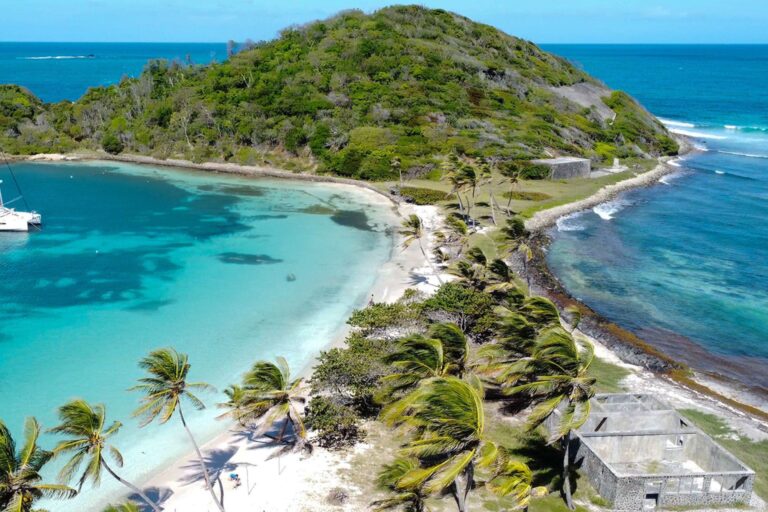Here’s a comprehensive overview of Saint Vincent and the Grenadines:
Saint Vincent and the Grenadines Overview
History
- Originally inhabited by the Caribs, it was colonized by the French in 1719 and later taken over by the British in 1763.
- Gained independence from the UK on October 27, 1979.
- Played a key role in the history of the Caribbean slave trade and resistance (e.g., Joseph Chatoyer, national hero).
Geography
- Comprises the main island of Saint Vincent and a chain of 32 smaller islands and cays (the Grenadines).
- Part of the Lesser Antilles in the Caribbean Sea.
- Capital: Kingstown (on Saint Vincent island)
- Nearby countries: Saint Lucia (north), Barbados (east), Grenada (south)
Political Structure
- Parliamentary democracy under a constitutional monarchy.
- Head of State: King Charles III (represented by a Governor-General)
- Prime Minister: Ralph Gonsalves (as of 2025)
Citizens
- Known as Vincentians.
- Population: ~110,000
- Ethnic groups: Primarily of African descent, with small Indigenous, East Indian, Portuguese, and European communities.
Education
- Free and compulsory between ages 5–15.
- Includes primary, secondary, and tertiary institutions.
- St. Vincent and the Grenadines Community College (SVGCC) is a major educational hub.
Healthcare
- Public health services available to all.
- Major hospital: Milton Cato Memorial Hospital in Kingstown.
- Common challenges include access to specialist care and medical equipment.
Food
- Staples: Breadfruit, plantains, cassava, rice.
- Popular dishes: Roasted breadfruit & jackfish (national dish), callaloo soup, pelau.
- Influenced by African, French, British, and Indigenous traditions.
Cultural Dress
- Traditional attire worn during festivals.
- Women may wear bright, patterned dresses, head wraps.
- Men often wear casual tropical clothing or African-inspired outfits during cultural events.
Types of Marriage
- Civil and religious marriages are both legal.
- Common-law unions also recognized socially.
- Legal marriage age: 18 (16 with parental consent).
Natural Resources
- Fertile volcanic soil (good for agriculture).
- Bananas, arrowroot, and root crops are main exports.
- Also has forests, rivers, and marine resources.
Sports
- Football (soccer) is popular.
- FIFA ranking: Around 170s in recent years.
- Cricket is widely followed (part of West Indies Cricket Team).
- Basketball and athletics are also played locally.
Natural Disasters
- Active volcano: La Soufrière (last erupted in 2021).
- Vulnerable to hurricanes, floods, and landslides.
Ports & Airports
- Main seaport: Kingstown Harbour
- Main airport: Argyle International Airport (AIA) – handles regional and international flights.
Climate
- Tropical climate: hot, humid, and rainy (June–November), cooler and drier (December–May).
- Average temps: 24°C–31°C (75°F–88°F)
Real Estate
- Foreigners can buy property with an Alien Land Holding License.
- Popular for eco-tourism resorts, beachfront villas, and retirement homes.
Census
- Last census: 2012; next expected around 2025/2026.
- Population estimated ~110,000+ with gradual urbanization.
Foreign Investment
- Incentives for investors in tourism, agriculture, ICT, and renewable energy.
- Member of CARICOM and OECS, allowing regional market access.
Military
- No regular army.
- Royal Saint Vincent and the Grenadines Police Force with coast guard handles security.
Forests & Wildlife
- Rainforests cover much of the island.
- Wildlife includes iguanas, agoutis, parrots (like the endangered St. Vincent parrot), and tropical birds.
Famous People
- Kevin Lyttle – international soca artist (“Turn Me On”)
- Becket (Alston Cyrus) – calypso legend
- Sabrina Mitchell – FIBA executive & sports advocate
- H.E. Ralph Gonsalves – long-serving Prime Minister



